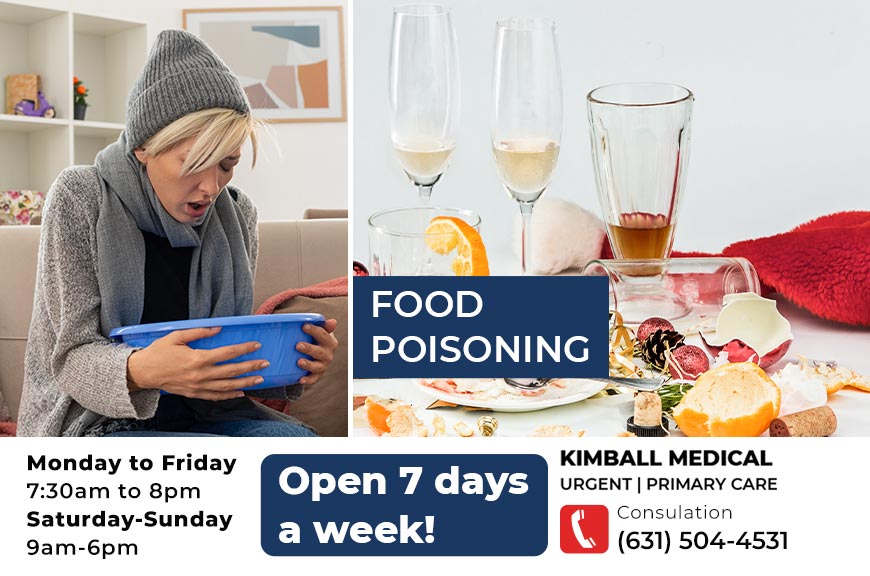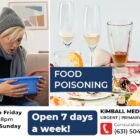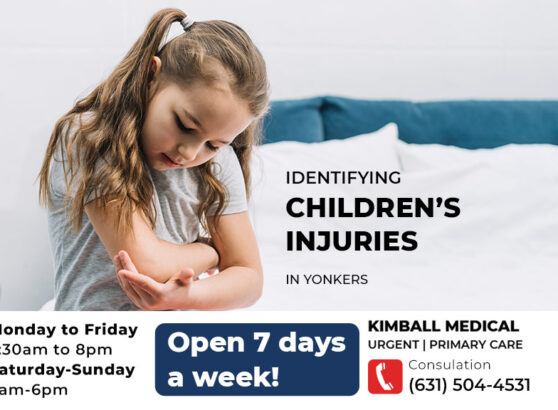Food poisoning is an all-too-common issue that impacts millions of people every year. It occurs when harmful bacteria, viruses, parasites, or toxins contaminate food, leading to a range of uncomfortable and often distressing symptoms such as nausea, vomiting, diarrhea, and fever.
While many cases of food poisoning are mild and resolve on their own, some can be severe and even life-threatening, especially for vulnerable groups like children, the elderly, and pregnant women. Knowing how to identify food poisoning, when to seek care, and where to go can make a significant difference in ensuring quick recovery and preventing complications.
Common Symptoms of Food Poisoning
- Nausea and vomiting
- Diarrhea
- Abdominal cramps and pain
- Fever and headache
- Muscle aches and weakness
If you or a loved one experiences severe symptoms such as dehydration, bloody diarrhea, or severe abdominal pain, it’s crucial to seek medical attention promptly. These signs could indicate a more serious condition that requires immediate treatment.
How Long Does Food Poisoning Last?
The duration of food poisoning can vary depending on the type of infection, your overall health, and how quickly you receive treatment. For most people, mild cases of food poisoning last anywhere from 1 to 3 days. The symptoms generally subside within this time frame with proper hydration and rest.
However, more severe cases can last longer, particularly if complications such as dehydration or organ issues occur. If symptoms persist for more than 3 days or worsen over time, it’s important to seek medical attention to avoid complications.
Is Food Poisoning Contagious?
While food poisoning itself isn’t contagious, the bacteria or viruses that cause it can be. For instance, norovirus and Salmonella are examples of contagious pathogens that can spread from person to person, typically through contaminated food, surfaces, or direct contact.
To prevent the spread, it’s important to wash your hands thoroughly after using the restroom, preparing food, or touching contaminated surfaces. Avoid close contact with others while you’re sick, especially if you’re vomiting or experiencing diarrhea.
How Soon After Food Poisoning Do You Vomit?
Vomiting can occur as soon as 1 to 6 hours after consuming contaminated food, depending on the type of pathogen involved. For some, vomiting may be the first sign of food poisoning, while for others, it could be accompanied by diarrhea, stomach cramps, or fever shortly thereafter.
How to Treat Food Poisoning
The treatment for food poisoning depends on the severity of the symptoms. For mild cases, here are some general treatment guidelines:
- Stay hydrated: Drink fluids like water, oral rehydration solutions, or clear broths to replace lost fluids and electrolytes.
- Eat bland foods: Once you feel able to eat, stick to easy-to-digest foods like crackers, rice, and toast.
- Rest: Give your body time to heal by avoiding strenuous activities.
- Medication: In some cases, over-the-counter medications may help reduce nausea or diarrhea, but these should be used with caution. Always consult with a healthcare provider before taking medications, especially for children or elderly individuals.
When Should You Go to Urgent Care?
Urgent care centers are ideal for mild to moderate cases of food poisoning. If you’re experiencing symptoms such as nausea, vomiting, diarrhea, and stomach cramps, but aren’t showing signs of dehydration or severe complications, urgent care is typically the best option.
Finding a Clinic Near You in Yonkers
If you’re unsure where to go, Kimball Medical Center in Yonkers is a great option for urgent care. We offer fast and efficient care for food poisoning and other medical concerns. Our urgent care center is open 7 days a week, providing flexible hours for those who need immediate attention. Whether you need hydration, medication, or just advice, we’re ready to help.







